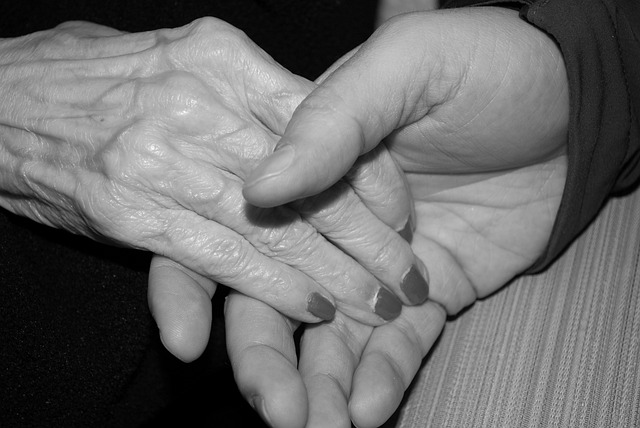Advanced Care Directives (ACDs) are crucial legal tools for planning end-of-life care, especially for those seeking palliative or hospice support. These documents allow individuals to specify their medical treatment wishes and care preferences, including resuscitation and ventilation decisions, ensuring healthcare providers respect patient autonomy. Creating an ACD involves clear preparation, designation of a trusted healthcare agent, signing, notarization, and periodic reviews, empowering individuals and their representatives to make end-of-life decisions according to the patient's desires. Legal support is essential for navigating regional legal frameworks and ensuring compliance with ACDs, offering peace of mind during challenging times.
In today’s digital era, discussing end-of-life planning can be delicate yet crucial. As we navigate a complex healthcare landscape, understanding legal support for palliative and hospice care becomes essential. This article delves into the significance of Advanced Care Directives as a vital tool for personalizing end-of-life decisions. We explore how legal counsel facilitates the execution of these wishes, ensuring compliance and peace of mind. From creating directives to navigating the legal landscape, this guide offers practical steps for folks seeking to leave a testament of their care preferences.
- Understanding Advanced Care Directives: A Vital Tool for End-of-Life Planning
- The Role of Legal Support in Palliative and Hospice Care
- Creating and Executing Your Wishes: A Step-by-Step Guide
- Ensuring Compliance and Peace of Mind: Navigating the Legal Landscape
Understanding Advanced Care Directives: A Vital Tool for End-of-Life Planning

Advanced Care Directives (ACDs) are a crucial tool for individuals planning their end-of-life care, especially those seeking palliative or hospice support. These legal documents allow people to make known their wishes regarding medical treatment and care preferences when they can no longer communicate for themselves. An ACD provides a voice for patients, empowering them to decide how they want to receive care during serious health conditions or at the end of life.
By creating an Advanced Care Directive, individuals can specify their desired treatments, accommodations, and comfort measures. This includes decisions about resuscitation, artificial ventilation, and other medical interventions. ACDs ensure that healthcare providers respect a patient’s autonomy and follow their wishes, facilitating peaceful and dignified end-of-life experiences. They also offer families clarity and guidance during an emotional time, ensuring the patient’s preferences are honored.
The Role of Legal Support in Palliative and Hospice Care

Legal support plays a vital role in ensuring that individuals’ wishes regarding palliative and hospice care are respected and implemented as intended. It facilitates the creation and enforcement of advanced care directives, which allow people to communicate their preferences for end-of-life medical treatments and care settings. With legal backing, these directives ensure that patients’ autonomy is upheld, even when they become unable to make decisions for themselves.
This support is crucial in navigating complex healthcare systems and ensuring coordinated care. It helps families and caregivers understand and follow the individual’s wishes, providing clarity during emotionally charged times. Additionally, legal counsel can assist in resolving potential conflicts or ambiguities within advanced care directives, upholding the integrity of the patient’s choices and fostering a peaceful transition to palliative or hospice care.
Creating and Executing Your Wishes: A Step-by-Step Guide

Creating and executing your wishes for palliative and hospice care is a crucial step in ensuring your autonomy and preferences are respected during end-of-life decisions. Start by understanding what an advanced care directive (ACD) is—a legal document that outlines your desires regarding medical treatment, including life-sustaining measures, should you become unable to communicate or make decisions for yourself.
Follow these simple steps:
1. Assess Your Needs and Preferences: Reflect on the type of care you’d want to receive if you’re unable to speak for yourself. Consult with your healthcare provider and loved ones for clarity.
2. Prepare Your Document: Write down your wishes clearly, or consider using a template provided by legal services dedicated to advance care directives. Ensure it complies with local laws.
3. Designate an Agent: Appoint someone you trust as your healthcare agent or proxy. This person will act on your behalf and communicate your wishes to medical professionals.
4. Sign and Notarize: Execute the document according to legal requirements, usually involving signing in front of a notary public. Keep multiple copies handy for easy access and sharing with relevant parties.
5. Review and Update: Life changes; review your ACD periodically and update it as necessary to reflect your evolving wishes.
Ensuring Compliance and Peace of Mind: Navigating the Legal Landscape

Ensuring compliance with your wishes regarding palliative and hospice care is a crucial aspect of maintaining peace of mind during what can be a challenging time. The legal landscape surrounding advanced care directives (ACDs) varies from region to region, making it essential for individuals and their families to understand their rights and options. An Advanced Care Directive is a powerful tool that allows you to communicate your preferences for end-of-life care, including life-sustaining treatments, pain management, and comfort measures. By creating an ACD, you gain control over your medical decisions, ensuring that your wishes are respected even if you become unable to speak for yourself.
Navigating this process requires careful consideration of local laws and regulations. It is advisable to consult with a legal professional who specializes in healthcare law or end-of-life planning. They can provide guidance tailored to your specific circumstances, helping you create an ACD that aligns with the legal requirements in your area. This proactive step ensures not only compliance but also offers invaluable peace of mind, knowing that your choices will be honored and that your loved ones will have clear guidance during their time of grief.
In conclusion, legal support plays a pivotal role in ensuring that individuals can express their wishes regarding palliative and hospice care through Advanced Care Directives. By understanding the creation, execution, and navigation of these directives, families can find peace of mind knowing their loved ones’ end-of-life preferences are respected. This comprehensive guide emphasizes the importance of proactive planning, enabling individuals to take control and shape their care experience according to personal beliefs and values.
